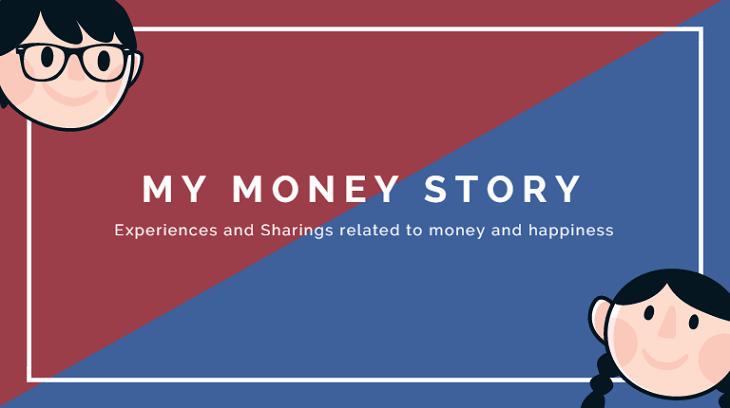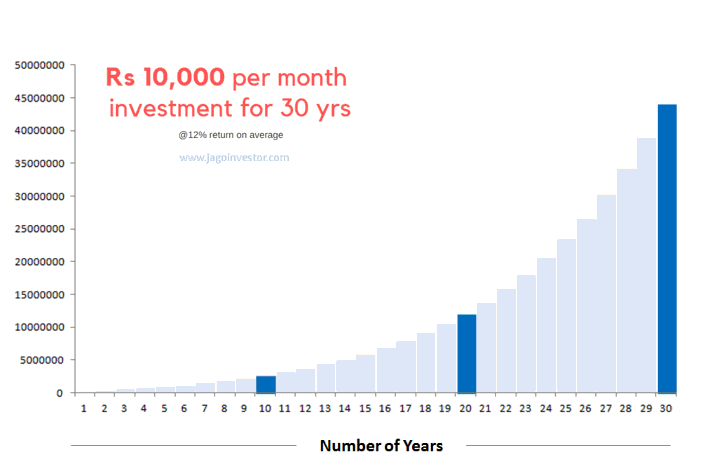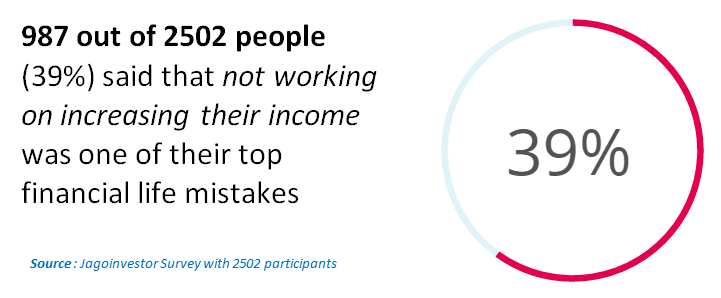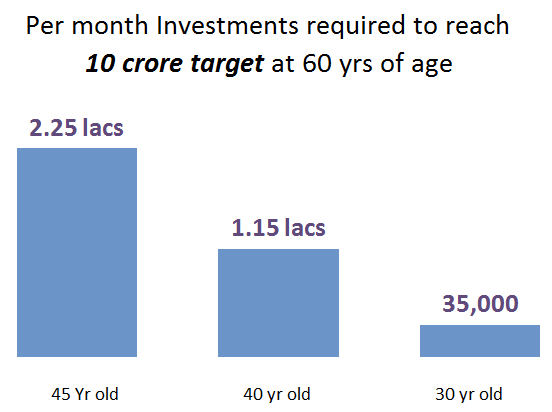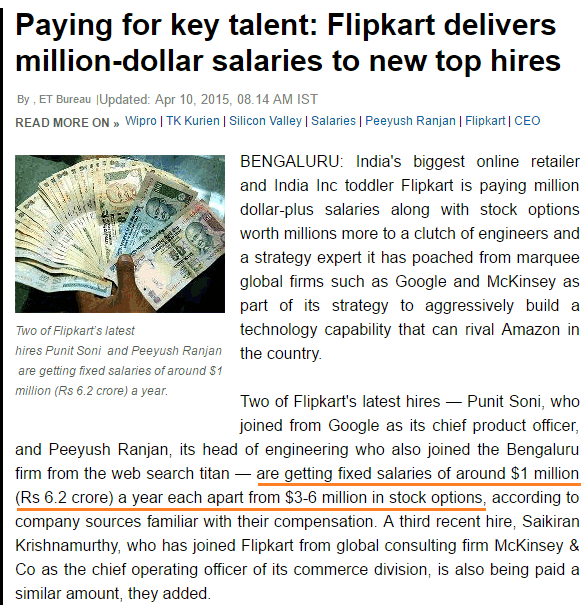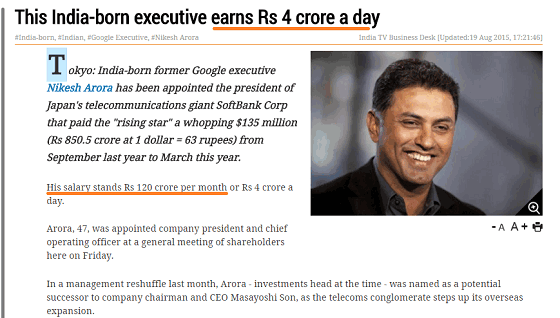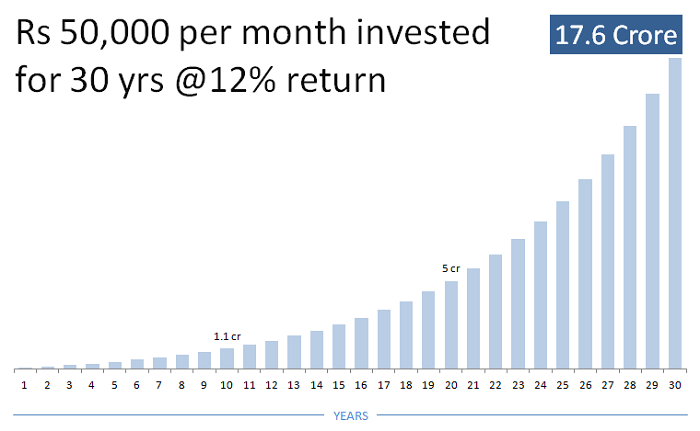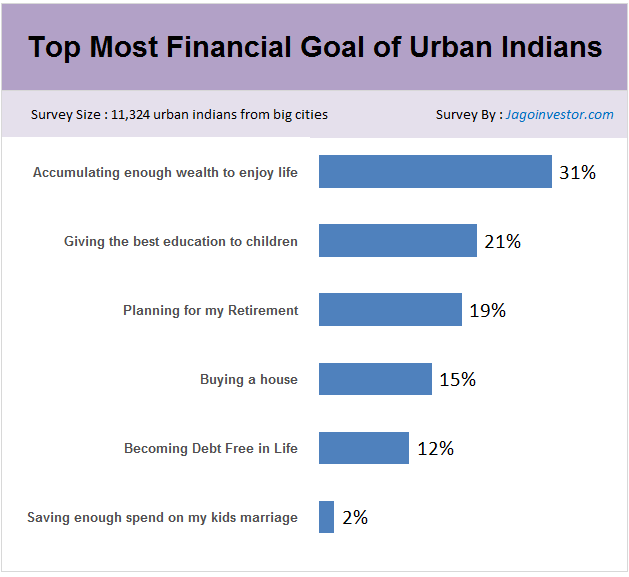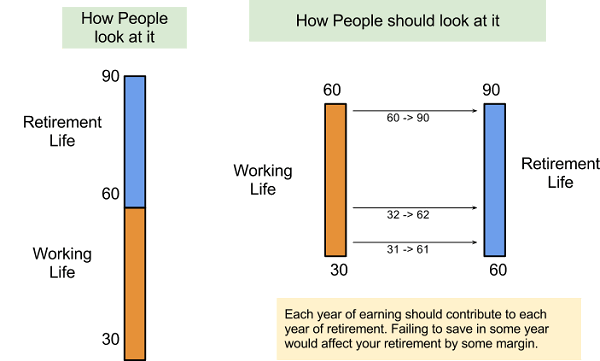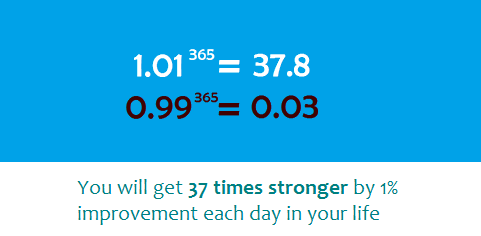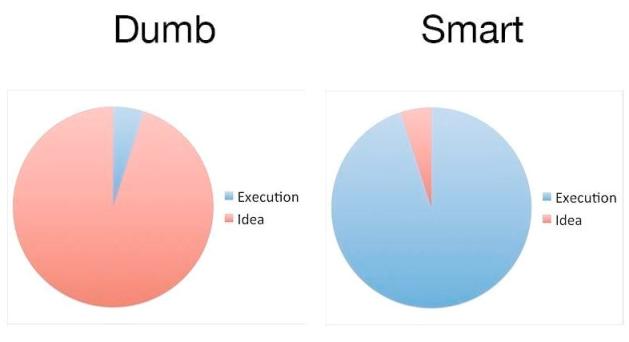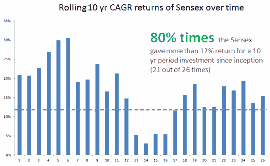Do you want to create a lot of wealth? Do you want to see crores of rupees in your bank account? I am sure you know that’s not an easy task. You also know that it will take a lot of time and dedication to create wealth over the long term. Do do you know that it’s more tough than you think? I will show you why?

Have you ever seen those retirement calculators online, where you punch in your numbers and find out how much corpus you will be able to generate over the years if you consistently invest a fixed amount year after year at a certain rate of interest?
The calculator throws a big number at you and you feel – “Wow … That’s looks straight forward and simple”
Below you can see an example.
I calculated how much wealth a 30 yr old guy can generate by the time he retires at age 60 (30 yrs tenure) if he invests Rs 20,000 per month at a return of 12% per annum. Below is the result.
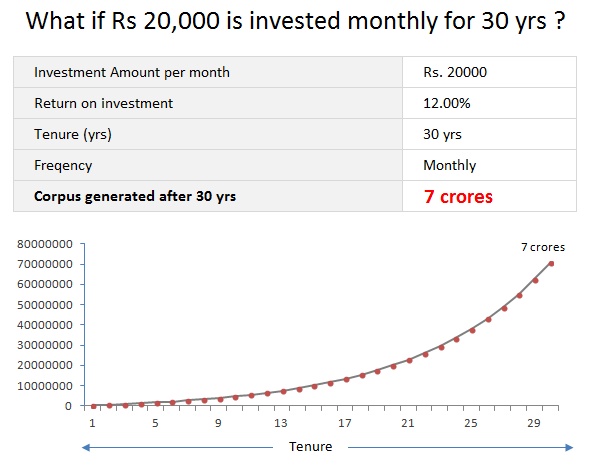
It looks so simple on paper. One can generate a wealth of Rs 7 crores in 30 yrs period if one consistently invests Rs 20,000 per month.
Doesn’t it look over simplified? It definitely is!
While the calculator above makes it look like a child’s play to create long term wealth, in reality – it’s definitely not that easy and there are various things to be considered here, which I want to discuss in this article.
What are the assumptions in the calculator above?
If you look at the calculator above and the numbers, you will realize that 5 assumptions which are
- The investor keep earning over the years and bring back the income
- The investor will have enough surplus each month
- Investor will be able to generate a 12% return over long term
- The investor will not disturb his wealth creation process
- The investor will not use the money out of the accumulated money till the end of tenure
Now if you look at the 5 points above, long term wealth can be created only if all the 5 points above are true or maximum of them are true. Each of the point above is a challenge in itself. If you overcome all these 5 points, you are then set to build long term wealth.
So now, if you try to capture these points as the ACTION and RESULT, then here is how it looks like
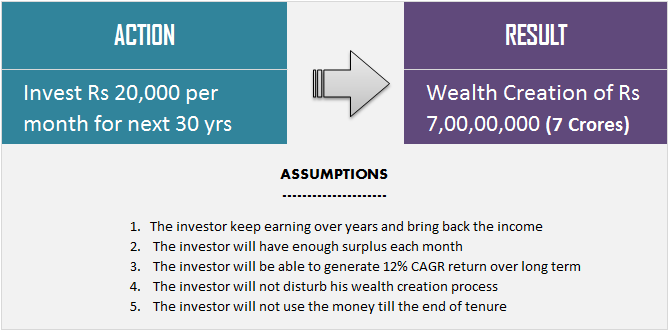
So let’s touch on each of these 5 assumptions one by one and see in detail and see what are the challenges in handling them
Assumption #1 – The investor will keep earning over the years and bring back the income
Let’s start from the most basic foundation point.
A lot of people who have been earning from many years (let’s say 5 yrs) and never faced any issues in their career seem to feel that its a cakewalk to continue doing it without any issues for the next 20-25 yrs of their life. They think that it would be a smooth ride. However, you need to know that
- There is a section of the population who are struggling in their career and will not be getting the same salaries if they switch jobs
- There are people whose income is not rising as per their expectation and a lot of people take salary cuts
- A lot of investors are out of their jobs/business due to competition, policy changes in the industry
- A lot of investors at times spend many months without bringing back any income because of health issues, layoffs, and other reasons.
At least 3 of our clients have stopped their SIP’s in the last 6 months because their income has stopped/reduced due to some issues at their workplace. While it might be a short term problem, you never know if it can extend for a very long time for some one. One client is working in the Middle East, and his job is not that stable and he is damn scared of this fact.
Another client told me that as per his understanding, he is getting the maximum salary he can command in his industry and if he loses his job for any reason, he will have to join another company at a lower salary.
One client is hell scared because he is just surviving his job from many years and if he is fired due to non-performance, he does not believe that other companies will hire him at the same salary
Focus on your “employability” and potential to earn
My partner Nandish Desai, says a very important point about employability – “To get a job, you need to be useful for someone”
You need to make sure that whatever you do, whichever sector you enter, which ever skill you acquire – do it like a pro. Become a highly useful person in your domain of work. Be among the best. Your skills should be outstanding and you should be the master of what you do. If that happens, you will be highly sought after and everyone will want to hire you.
This way you are ensuring that all your future income is secured. If things get tough in your industry, you will be one of the last people who will face issues. If you face any issue, you will soon find a new job. And if you want to switch, you can command a better salary.
Focusing on your career and investing in your own development is one of the most rewarding decisions you can make in your financial life. Only when you ensure that you have taken care of this point, other points will come into the picture.
You need to understand that only if your future cashflow is protected, only then you can save from it and only then you can think of the returns and everything else. No income, no wealth in the future!
Assumption #2 – The investor will have enough surplus each month
Taking the example above, the 2nd assumption was that the investor will continue investing Rs 20,000 per month over the next 30 yrs without fail. For you personally, this number can be Rs 10,000 or Rs 50,000, the same is true for yourself.
Will you be able to consistently invest that much each month? Will you be left with that much each month? year after year?
You might be able to continue that for some months or years but think of the real-life issues which we all face. And you never know your life will take turns, you never know how unpredictable things are. You might have to switch jobs because of health?
When you will have kids, your expenses might shoot up, you may face an emergency which might last for many months to come, there can be health issues and you can get into the never-ending cycle of –
High income -> high expenses -> less saving.
In fact, I have seen this in reality. Forget about investing each month, one of our clients is redeeming back from his mutual fund’s corpus because there is a prolonged medical emergency at home and he is not able to handle all expenses the way he had planned before.
My whole point is that it’s very very tough to maintain the consistency and discipline in investing in real life and there will be disturbances.
High Lifestyle is making saving tougher
Now a day’s it’s more common to see people living on a paycheck to paycheck basis. The high lifestyle and the increased consumerism have ensured that even if you are earning high, it will get tough for you to save. Salaries like Rs 1 lac or 2 lacs per month are very common these days in many cities, but the savings are not in line with the salary.
Hence, you need to ensure that you after your expenses are done, you generate a consistent and a minimum 20% of investible surplus from your salary. Take it as a game and try to win it each month.
Assumption #3 – The investor will be able to generate a 12% return over the long term
The next assumption is that the investor will generate 12% return over long term from his investments? Now where do you invest your money to get more than 12% returns over such a long term?
Any guesses?
The answer is equities !. It has to be in shares, equity mutual funds, ETF’s, Index funds, etc. This is not an easy thing for the majority population in India, because most of the people in India do not understand how equities work and banking products are their lifelong favorite. They are earning 8-9% (6-7% post-tax) from years.
So for them to earn 12% would be very tough because first, they need to get clarity about how equities work and get comfortable with it.
Data and chart:
Now let me show you some data and charts which will convince you why you should be in equity to earn a 12% return on your investments.
Below is the chart which shows the CAGR return for 10 yrs periods if the money was invested in NIFTY. The data is from 1st Jan 2001 to 1st Jan 2016, so there are many 10 yrs period like
- 1st Jan 2001 – 1st Jan 2011 (first point)
- 2nd Jan 2001 – 2nd Jan 2011
- —
- —
- 1st Jan 2006 – 1st Jan 2016 (Last point)
We then plotted the CAGR Return for all these periods and below is the answer. The CAGR return almost always was above 12%, however for few months towards the end it was a bit below 12% .
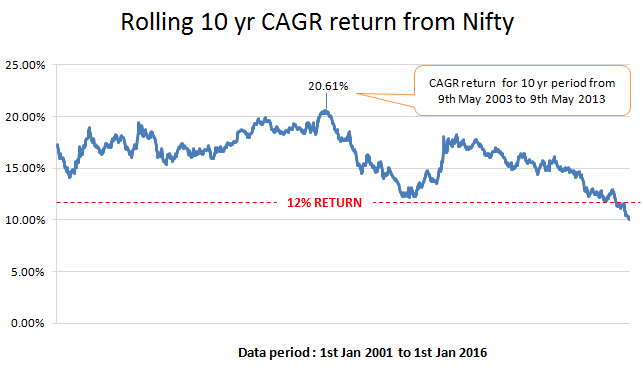
Another graph which I want you to see is the 10 yrs CAGR return chart from Sensex, which is for its 36 yrs of existence.
So there are 26 different “10 yrs” tenures and we calculated the CAGR return for all the 26 data points and below is the result. Around 21 times out of 26, the return was more than 12% and at times it was very high like 20%-30 %. Few periods had fewer returns like 6% or 11 %, but then if you look at the overall 36 yrs period, the CAGR return converts to 17% return.
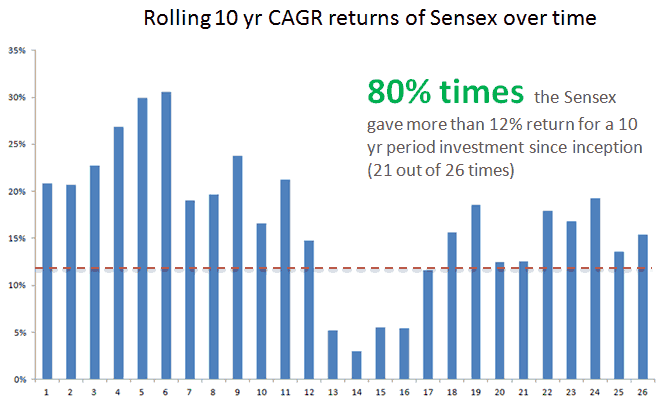
Now while it’s very easy to conclude that if you invest in equity over a long term, you will get required 12% return, its very tough to practice in real life, which we will see in next point very soon.
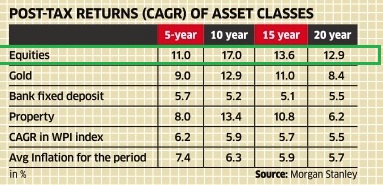
Lets me share with you that a very small percentage of our India population invests in Equity.
The major money lies in FD, Gold and insurance products and even real estate. And it’s going to be very tough to generate a 12% return from these asset classes. In fact, Morgan Stanley’s Research has clearly shown that equity has beaten all the asset classes in the long run and below is a snapshot of that research.
So if you want to build wealth over the long term and you are investing the majority of your money in FD, understand that your post tax return is lower than the inflation.
Your money might be growing in numbers (Rs 10 lacs became 20 lacs in 9 yrs), but the worth of your money has come down (20 lacs today can buy less of what 10 lacs could have bought 9 yrs back). You are in fact getting poorer in a slow-motion and you are not realizing that.
Assumption #4 – The investor will not disturb his wealth creation process
Read the following question and answer.
Q – Do you know what is the biggest challenge for an investor if he has invested in equities (mutual funds or Stocks)?
ANS – To remain inactive and sit tight without doing anything and let his wealth grow.
Making money in stock markets is challenging, not because markets have any issue, but because we investors have a behavioral issue. We can’t handle the uncertainty and volatility which comes with the stock market. It’s not for weak-hearted.
For some one who has been with FD’s and has the habit of seeing his investments grow in a linear fashion, he can literally go crazy with mutual funds because it brings so much of ups and downs and volatile movements.
Should I stop SIP when the market is falling?
In the last 2 weeks itself, we have got many emails from our clients whose SIP’s are going on in equity mutual funds, asking if they should stop their SIP’s as markets are falling? I have told them to act like a ninja investor and see it as an opportunity and pump in more money because in the coming years we might see a very good bull run? (any body remember what happens for the next 2-3 yrs after 2007 crash ?)
Note that all these clients SIP’s are running for very long term goals like retirement or children’s education which are going to arrive only after 15-20 yrs. There is no problem as such with that behavior.
It’s very natural, but I am just trying to tell you that it’s not that easy to handle the pressure which comes from the volatile nature of markets and very few investors have that dedication and understanding of how things work in the stock market.
Very few people can control their greed and fear and that’s the reason very few people are able to make the most of the returns from the equity markets over the long term. Below you can see a snapshot of kind of queries which start coming up if markets show any kind of fall for a long time like 6 months or a year.
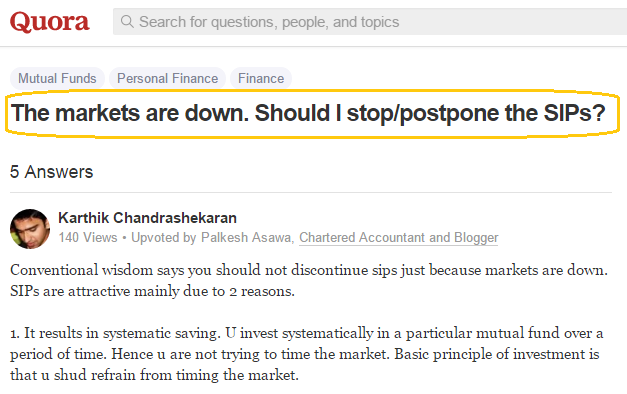
The cycle of Greed and Fear
If you see the stock markets right now, you will realize that we currently are in that same phase where investors panic and take out the money from their portfolios. Markets are falling from last 1 yr and especially this month it has gone down by a big margin.
So even if an investor is investing a good amount each month and he has read about how equity markets work and they understand the game of equity, still it’s very tough for an average investor to stay calm and stay with markets consistently for a very long time.
Some stop their SIP’s, Some redeem their money and shift it to FD’s thinking – “I will again be back, when the markets will calm down and start going up”.
However, you never know when that up move started and by the time you realize, you lose the next bull run. The below chart clearly shows how 99% of investors think and behave in stock markets.
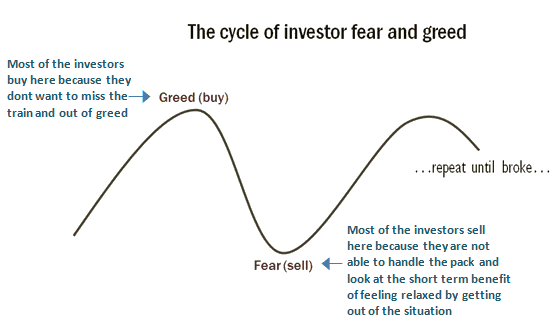
So what is the solution? What should you do?
Remember that if you are in equities with a long term view like 10-15-20 yrs, then you are going to see many cycles of ups and down. You can’t escape it. You need to think of the down market as the “sale” where you can accumulate more stocks or mutual funds units at a cheaper price so as to gain from the up move later.
And when markets are going up, don’t redeem your money or try to “book the gains” because you will most probably miss the bigger up move trying to redeem the smaller up move. You need to understand that you are not there for “trading” or short term profit booking (incase, you are there for trading, then this does not apply to you)
Just sit tight, keep your SIP going and make sure you are in right mutual funds (not the best, because it does not exist). Review them in a few years and let the process of wealth creation take place. It requires patience and only a small percentage of investors are going to reach the final destination. Be one of them.
Assumption #5 – The investor will not use the money out of the accumulated money till the end of tenure
Having 5 lacs in your bank account is very different from having Rs 5 crores. You might think – “What’s the difference? it’s just 100X, rest everything is same”
No, your feelings about your money, your risk appetite, your thoughts around money, your desperation to do something will be at a very different level when you have 100X money in your bank account.
It’s a very tough thing to “not do anything” when you have so much money getting accumulated in your account. Once your corpus reaches a respectable limit like 80 lacs or 1 crore, you will start thinking in these lines
- Let’s shift some money in FD now.
- Let’s upgrade our house now, I can surely take out 50 lacs from my portfolio
- Now I deserve that dream car I always wanted, I have good money now
- Let me have a grand wedding for my children, after all – I have a good corpus now
Your lifestyle will go up, your vacations will get luxurious and you will get all the reasons to spend the money and take a dip in your portfolio.
Let me be clear, that I am not saying there is anything wrong with spending your money or using it for yourself.
please do that. After all, if you have managed to earn so much money and accumulated the good corpus, you surely deserve a better lifestyle.
All I am saying is that it’s a challenge to let your portfolio grow and not disturb it. So in our example at the start of the article, you might not reach 7 crores as per calculation, but may be 4.3 crores or just 3 crores, because you keep taking out the money out of your corpus many times in between for various reasons.
If you are just taking out a portion of your corpus and reinvesting in something else which you can redeem back later, it’s still fine. But if you are “spending” the money and consuming it, then it’s GONE. That part will not reflect in corpus now and you will have a lesser corpus to that extent.
If you can make sure you have that ability to stay calm and see your wealth grow without disturbing it, then you are bound to see a good amount of wealth in your life.
So here is the final checklist before you start your wealth creation journey
- Spend a good amount to time to understand how equities work in the long run. I have explained about equity in the 3rd chapter of my 1st book – “16 personal finance principles every investor should know”. Get a copy and read it
- Work on your career strongly and become very very good at what you are doing. Make sure you are highly employable even if the bad time comes. This will make sure your cash flows are more or less ensured.
- Spend 10% time on cutting down your expenses if there is any scope, and spend 90% of your energy in increasing your income. Remember, reducing expenses is tough and has a lower limit. Increasing income does not have a ceiling.
- Make sure you start the SIP in equity mutual funds with a long term perspective. When markets fall, rejoice ! and keep adding more money. Be a tough hearted and you will be rewarded over long term
- Make sure you plan for other goals separately so that you do not use your main corpus in between for small things
Let me know if your way of looking at long term wealth creation has changed or not by reading this article. I would love to hear your views.



